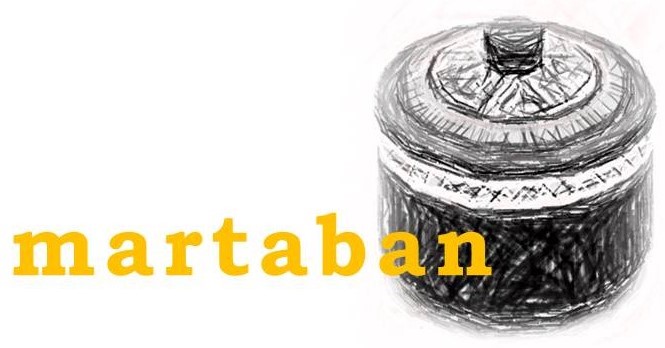“Bhai agar bore ho raha ho na to novel padh lio. Sahi hai
ekdum… “
“wohi jo tu uss din padh raha tha?”
“haan... chaar ghante mei khatam kardi… mann hi nahi tha rukne ka.”
Three, tall in their early twenties hung from the handle bars in the yellow
line of the Delhi metro from Gurgaon to Delhi. Bags slung at their backs and
earphones dangling from big Samsung phones, the trio discussed of how one of
their acquaintance (batch-mate/friend) is exceptionally rich. Oh! And the novel
was Half Girlfriend.
September, last month, India Today did a cover story on
Chetan Bhagat. Aroon Purie, the Editor-in-Chief confesses how after having
‘path-breaking personalities’ from the pool of Indian literature graced the
cover of the magazine at different points in time, the particular week’s choice
is slightly ‘unusual’.
Rather unusual is his popularity then if the Editor passes
the word ‘unusual’. 5000 copies were considered to be a bestseller in India.
Bhagat’s latest – Half Girlfriend was launched with a massive two million
copies countrywide by Rupa. The numbers surely are in such disarray. That is
his popularity. One of my friends; he hadn’t read a book in his life till he
graduated and stumbled upon five point someone quite later in its cycle at the
bookstore, pulled me back as I scanned the books in one of the many
sprawling-on-the-floor book stalls in Connaught Place for a copy of Caravan.
“Arre bhai, yeh Chetan Bhagat ki nai book aa gayi na?”
(Chetan Bhagat’s new book is available, right?)
That was a September evening, almost a month before the
launch of the book. Full page ads had spread the word. The same friend on a
different evening dragged us for a movie. I had resisted, in vain. Nonetheless
I had quite a time in the theatre. Not very surprisingly, if you have good
company you can enjoy a movie – either immersed in it, or laughing hysterically
on the very fabric of the film. We chose the latter, the two of us, but the one
who dragged us was quite happy watching Singham Returns; a 100 crore
club film? The movie indeed was hysterically hilarious, but what makes it such
for me is my liberty to stand somewhere and watch it from there. Oh! And that
somewhere I’d even agree at times to be called a platform – The movie’s for the
masses.

What’s two million minus five thousand? Who filled up the
numbers? One is this graduation friend of mine, I know three more from
graduation who have read either all or at least one of Bhagat’s previous books.
One of them has ‘graduated’ to reading Khalid Hosseini now.
His works are not complex, subjects not deep enough and the linear formats lack
layers in the characters. But that does not mean they could be less
entertaining, one of the prime purposes of a novel and that also means catering
to a segment, a massive chunk, which was by-far not written for. Movies are
slightly opposite in nature in the country. We had the melodrama and the
masala
that catered to the masses, as much as I would not want to use the word, and
few films, now growing in numbers and popularity – the once art house movies or
now experimental cinema. The moment the word ‘masses’ is used it straightaway
gives the other little segment, the classes, a little high creating a problematic
dichotomy. There sure is segmentation of audience, but not for one set to
commit this:
“I always judge people, excitedly, when I see them reading in the local train.
And I judge them again when I see them reading Durjoy Dutta.”
That was my colleague over the phone.
Singham Returns is an important movie. The villain gets
beaten up for being nasty with a woman. Hero No. 1, Govinda’s super hilarious
blockbuster does the same yet is troublesome. After the goons are thrashed the
woman is reprimanded for being out of home alone late in the night. Ajay
Devgan’s Singham sequel works because it speaks what needs to be spoken about –
corruption, social issues, communal harmony, respecting equality of sexes in
the language that those spoken to understand – in humour, melodrama and insane
action. Bhagat’s ‘five point someone’ too speaks to those who read it
religiously. Dispelling the north-south divide and the stereotypes, 2 states
should work well. Why should the boy be interviewed in English for his entrance
in DU, would a Hindi speaking chap be a lesser economist or a historian? His
latest Half Girlfriend is important for it picks on the language class divide.
The millions who pick up his books or watch ‘crass’ cinema convey an essential
economic, social and a political message, that stands a chance to be overlooked.
It’s a separate debate whether to credit Bhagat to draw in the
millions into a reading culture, and foster altogether a breed of new writers.
His writing for a segment is deliberate or is that his natural flow? May be
he’s just a very sharp marketer of his own work, coming out with his first
novel priced at a precarious Rs. 95. But sometimes credit pours down as
serendipity – He’s a reckoning point in the Indian publishing industry. The
critics mock at his number titled books and the numbers in millions – his fans
essentially know not who the critics are. It’s just a matter of who has the
last laugh. And much unlike its movie adaptation, Two States was quite a breeze
of laughter on a four hour bus ride some years ago.





